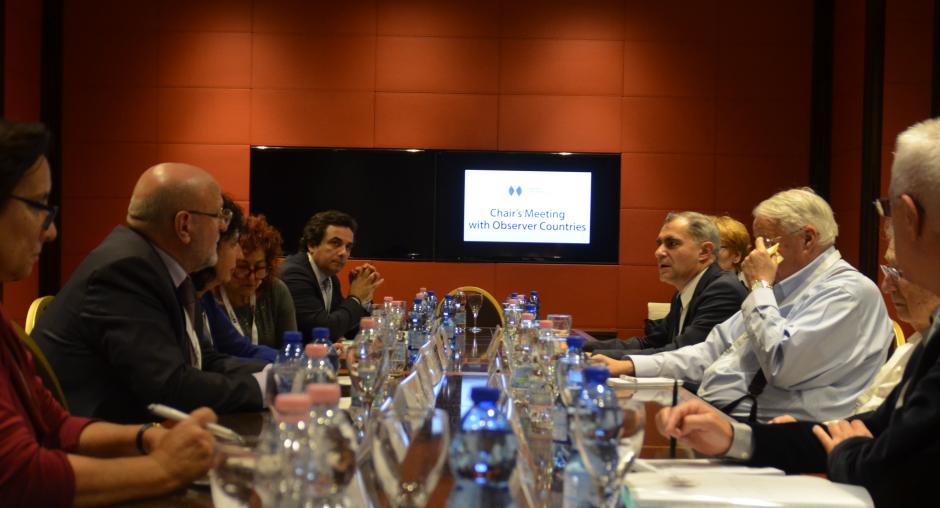As Republic of Moldova drafts its first Holocaust Action Plan, OSCE Mission supports Moldovan delegation at IHRA plenary

From 6 to 10 November, the OSCE Mission to Moldova accompanied and supported a Moldovan delegation to the plenary meeting of the International Holocaust Remembrance Alliance (IHRA) in Iasi, Romania. A priority for the delegation was to receive input for the first ever Moldovan Holocaust Action Plan, by drawing on best practices from other countries’ experiences. Romania in particular provided helpful insights to the Moldovan delegation, including by hosting a visit to the Iasi Jewish cemetery and to a former Holocaust killing site, which now serves as a museum.
The Moldovan delegation included representatives from the Jewish and Roma communities of Moldova, as well as state officials from the Ministries of Foreign Affairs and European Integration, the Ministry of Education, the Ministry of Culture, the Bureau for Inter-ethnic Relations and the Academy of Science. Its largest delegation to date made it possible for Moldovan representatives to actively participate in all the IHRA Committees, Working Group and Observer meetings as well as in the plenary.
On 22 July 2016, the Moldovan Parliament adopted a Political Declaration on the Acceptance of the Final Report of the International Commission on the Holocaust in Romania, chaired by Elie Wiesel. In the discussions, the Speaker of the Moldovan Parliament, Andrian Candu, proposed to the Moldovan lawmakers his idea to support the Declaration by tasking the government to prepare, by the end of the year, an “Action Plan in Social and Educational Fields for the Study of the Holocaust and Organizing Events for Commemoration of its Victims”. Mr. Candu’s initiative was accepted and included in the Political Declaration. The Action Plan is currently in preparation and should be adopted by the end of 2016.
At the IHRA meetings, Ambassador-at-large Ion Stavila, Head of the Moldovan delegation, stressed the importance of the Political Declaration of the Moldovan Parliament and stressed that a corresponding Action Plan is being drawn up to serve as a roadmap for the next two to three years. Mr. Stavila also pointed to the Republic of Moldova’s interest in learning from Romania, as well as from other countries. In this context, the IHRA Chair, Romanian Ambassador-at-large Mihnea Constantinescu, offered IHRA’s expertise to help draft the Action Plan. OSCE/ODIHR also accepted Moldova’s request to provide assistance in the preparation of such a plan.
The Republic of Moldova has Observer Status at IHRA since 2014. IHRA’s purpose is to place political and social leaders’ support behind the need for Holocaust education, remembrance, and research both nationally and internationally. Earlier in October 2016, the OSCE Mission to Moldova and the OSCE Office for Democratic Institutions and Human Rights (ODIHR), in cooperation with the Moldovan Ministry of Foreign Affairs and European Integration and Bureau for Interethnic Relations, organized a workshop for 75 participants to share expertise with Moldovan specialists on strengthening the commemoration and study of the Holocaust in a local context, based on international good practices.
